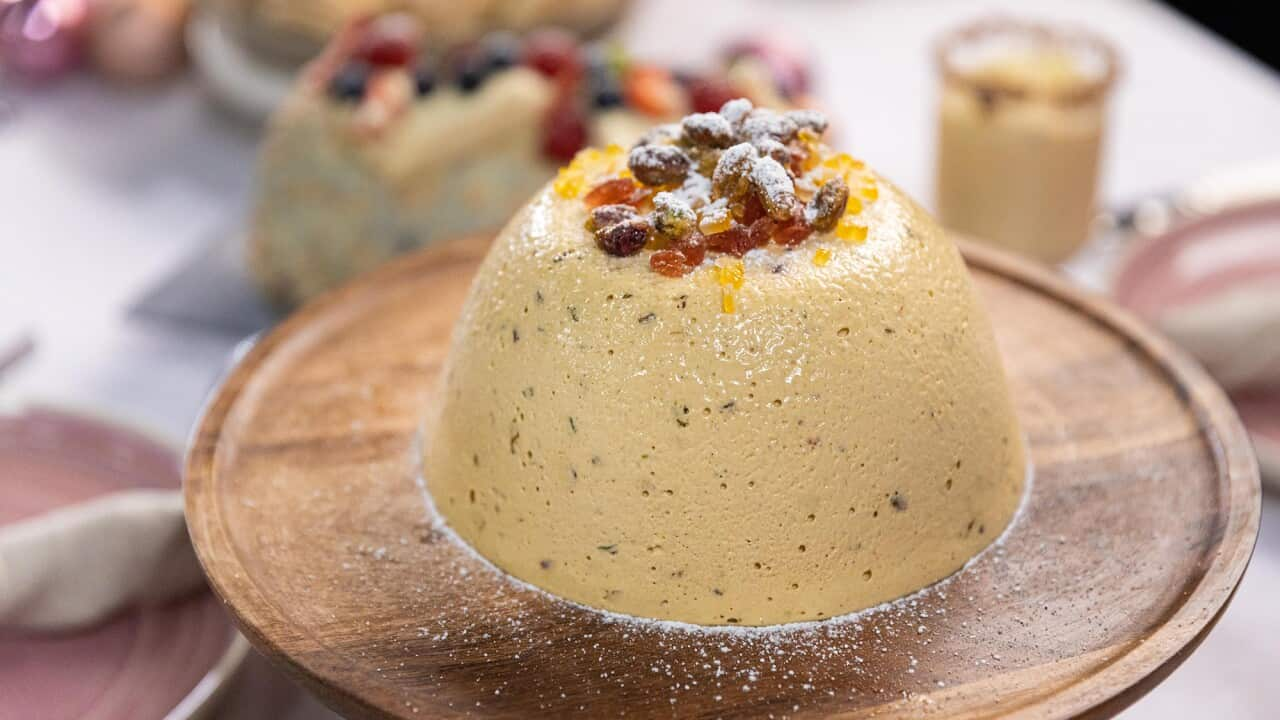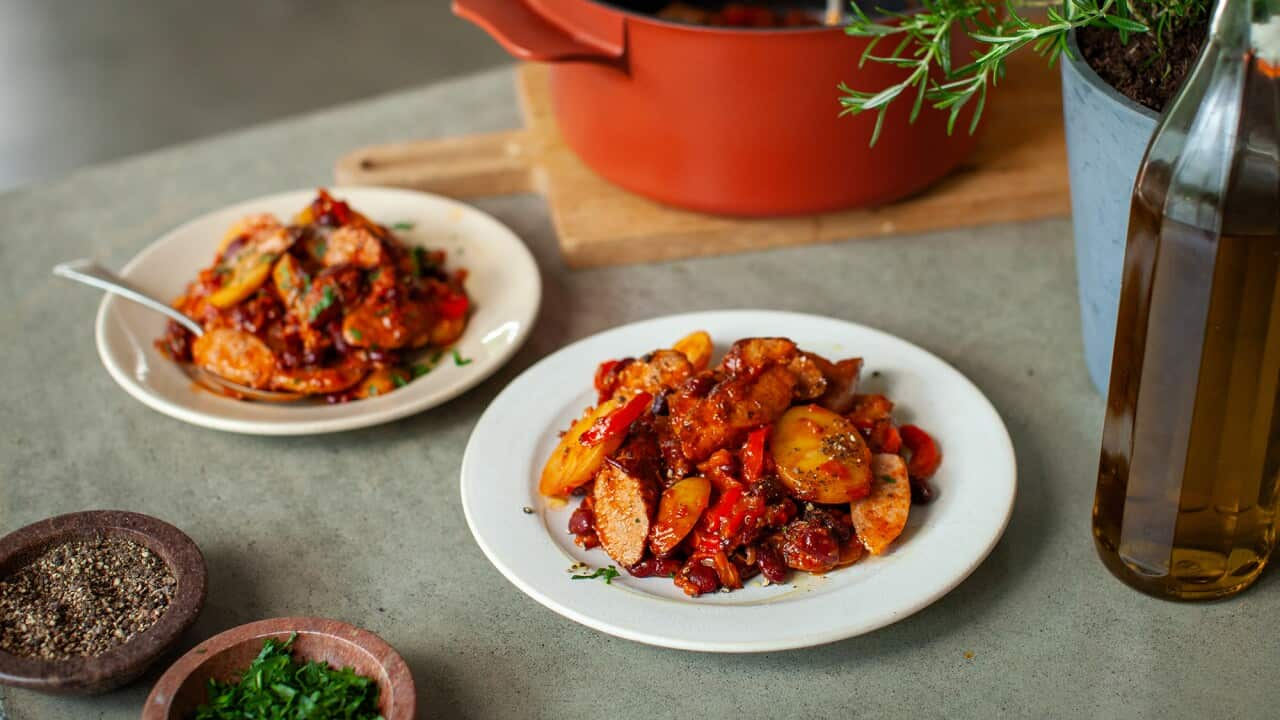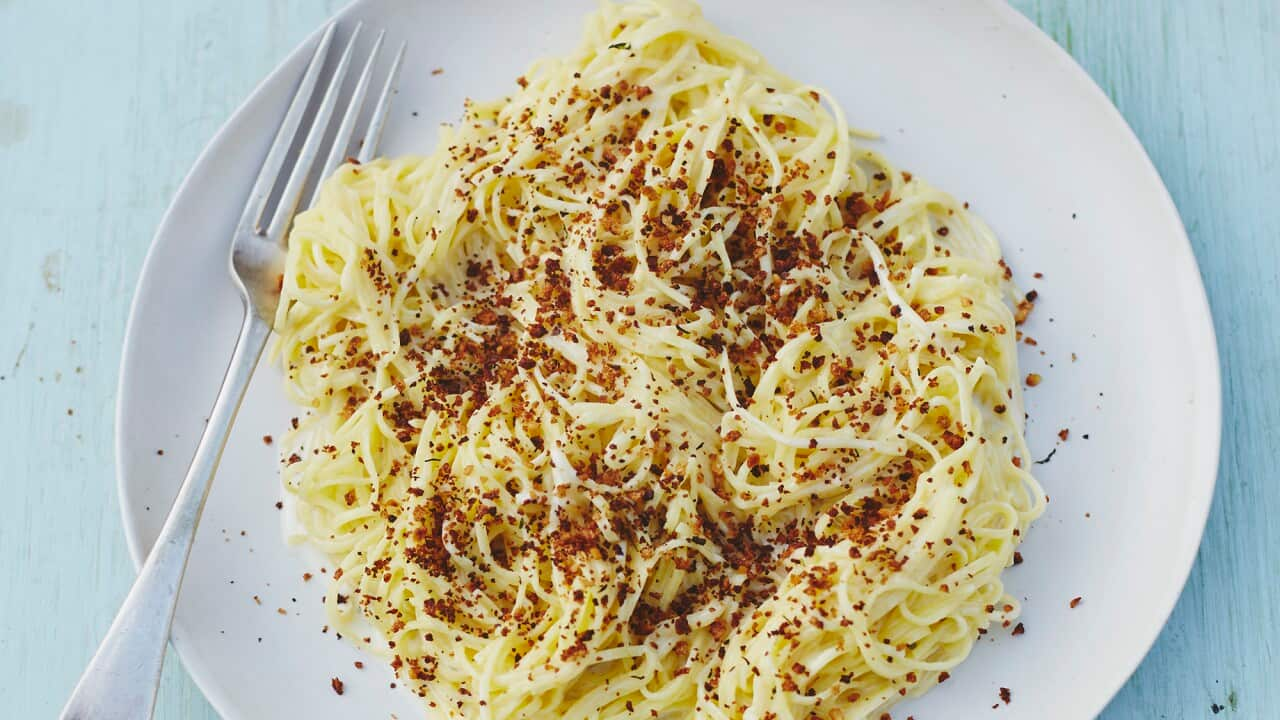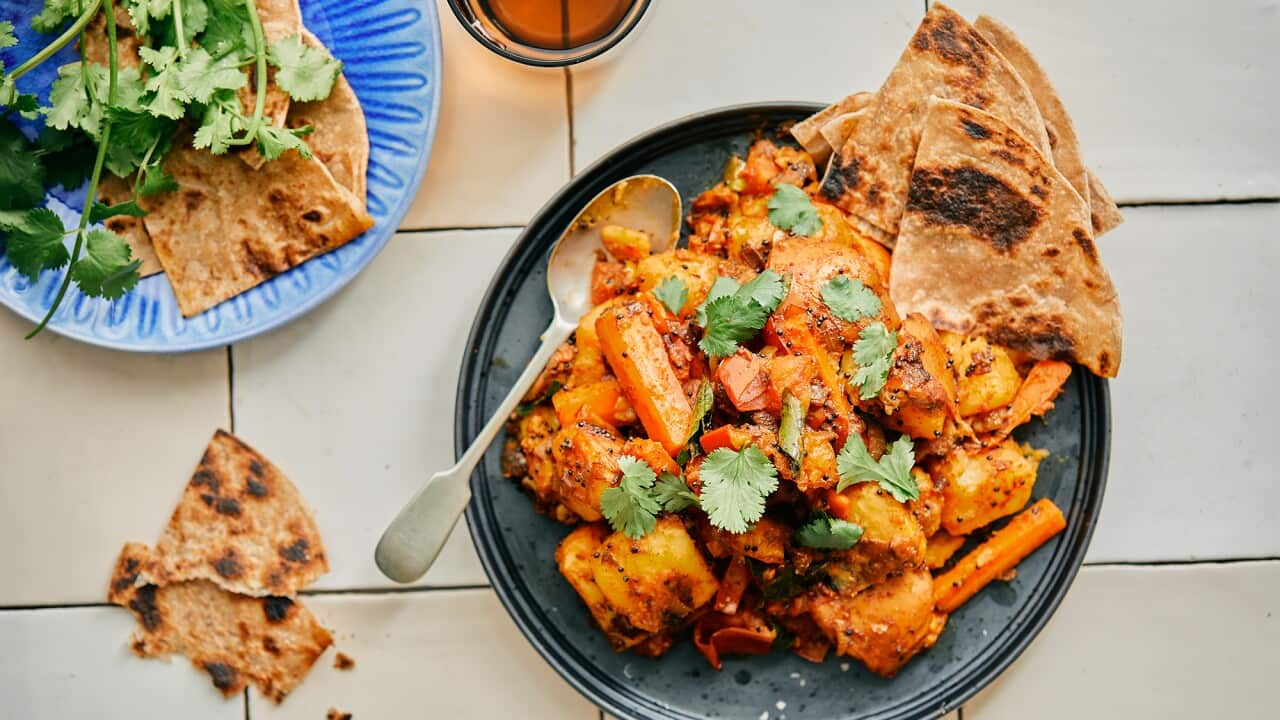serves
6-8
prep
1 hour
cook
35 minutes
difficulty
Ace
serves
6-8
people
preparation
1
hour
cooking
35
minutes
difficulty
Ace
level
Ingredients
- 475 g bread flour, plus extra for dusting
- 8 g dried yeast
- 395 g unsalted butter, plus extra for greasing
- 365 g caster sugar
- 18 g sea salt flakes, ground to a powder
- 310 ml iced water
Resting time: 20 minutes
Chilling/freezing time: 1 hour 40 minutes
Proving time: 2 hours 40 minutes
Instructions
- Mix flour, yeast, 20 g butter, 15 g caster sugar and 8 g salt in a kitchen aid mixer fitted with a dough hook on low speed to combine. With motor running, add 310 ml iced water and mix until dough comes together, then increase speed to medium and mix until dough is shiny and smooth (8-10 minutes). Grease a bowl with a little extra butter, then transfer dough to bowl, cover with plastic wrap and stand at room temperature until doubled in size (1-2 hours, depending on room temperature). Grease a work surface with a little butter, turn the dough out onto the greased bench and fold inwards into 3, as you would a letter, to knead lightly. Rotate dough and repeat this folding and rotating 3-4 times until dough is smooth and taut. Return to the greased bowl, cover and stand to rest (20-25 minutes).
- Press the dough into a rough rectangle on a piece of plastic wrap, then wrap tightly and freeze to chill (15-20 minutes). Flip dough over and continue chilling until dough is slightly firm (15-20 minutes).
- Meanwhile, draw a 15 cm x 30 cm rectangle on a much larger piece of baking paper and turn it over so the ink is underneath. Break remaining butter into pieces to fit template, then fold surrounding paper over the top to cover (if the paper doesn't completely cover the butter, place another piece of baking paper on top). Roll over butter with a rolling pin to create a slab of even thickness. Refrigerate to firm (15-20 minutes).
- Combine remaining caster sugar and salt in a bowl and set aside. Grease a 12-hole, ½-cup capacity muffin tray with butter and sprinkle about 1 tsp of sugar mixture into each to coat sides and with a thin layer on the bottom.
- Roll dough on a lightly floured surface to a rough 18 cm x 48 cm rectangle, keeping the ends square and a short edge closest to you.
- If chilled butter slab is too hard, gently tap it with your rolling pin to soften; it needs to be flexible but not soft. Unwrap butter and place on the dough so it is 5 cm away from the edge nearest you. Fold the edge farthest from you over the butter; it should cover half the butter.
- Brush away excess flour, then fold the section closest to you up and over, placing the butter side on top of the dough above, to enclose, like a letter, and press edges to seal. You will now have a rectangle with 3 layers of dough and 2 layers of butter.
- Rotate the dough 90 degrees and, keeping the bench floured, use steady, even pressure to roll the dough into a rectangle 3 times as long as it is wide and 5-mm thick. Dust off any excess flour, then fold the top third down and the bottom third up and over as before, keeping the edges and corners aligned. Wrap the dough in plastic wrap and refrigerate to chill (40 minutes). Repeat the process with another roll, rotating 90 degrees in the same direction as before, then fold. Wrap and chill as before (40 minutes).
- Preheat oven to 190ºC.
- Sprinkle an even layer of sugar mixture on the work surface and place the dough on top, rotating it 90 degrees. Sprinkle more sugar mixture over the dough then, working quickly (as the surface of the dough can become wet and sticky), repeat rolling and folding.
- Rotate dough once more, sprinkle with sugar and roll to a 5 mm-thick, 18 cm x 48 cm rectangle. Trim uneven edges, then cut dough into 12 squares of 8 cm each, and sprinkle each square with ¼ tsp sugar mixture.
- Ease a square into each muffin hole, then bring the corners in to meet in the centre and gently pinch to join using your thumb and index finger. Scatter with extra sugar mixture, stand to prove briefly (15 minutes), then bake, turning tray once during cooking, until golden and caramelised (25-35 minutes).
- Remove tray from oven and immediately turn out kouign-amann onto a wire rack using a palette knife and tongs (be careful, caramel will be very hot). Stand upside down on rack to cool and for sugar to set (15-20 minutes), then serve.
Enjoy a taste of France at home with Guillaume Brahimi on Plat du Tour, each night during each live stage of the Tour de France exclusive broadcast on SBS. For broadcast times, go to
Cook's Notes
Oven temperatures are for conventional; if using fan-forced (convection), reduce the temperature by 20˚C. | We use Australian tablespoons and cups: 1 teaspoon equals 5 ml; 1 tablespoon equals 20 ml; 1 cup equals 250 ml. | All herbs are fresh (unless specified) and cups are lightly packed. | All vegetables are medium size and peeled, unless specified. | All eggs are 55-60 g, unless specified.









